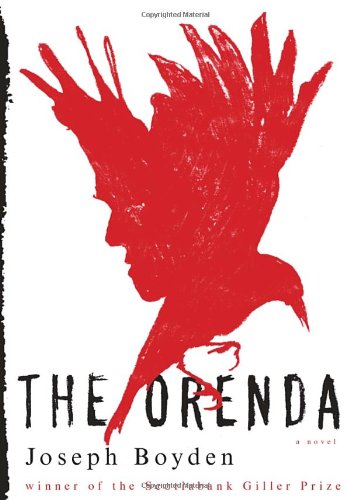The Orenda
Historical novelists, according to Hilary Mantel, allow readers to feel what it was like to live during a particular historical moment. Joseph Boyden achieves this and more in his third novel, The Orenda. Samuel de Champlain has established the province of Québec, giving the Jesuits an opportunity to bring Christian light to the indigenous population. The Iroquois (Haudenosaunee) and the Huron (Wendat) are at war. The story opens to reveal the tribal customs of revenge and of adopting the children of your dead enemy. Yet Bird, Boyden’s protagonist and one of the three first-person narrators of the novel, also brings back a Jesuit priest as part of the booty from his raiding party. Christophe is a religiously devout man whose mission to convert those he calls “sauvages” leaves no room to appreciate the spirituality of the people who saved his life. Snow Falls, another narrator and the daughter of the man Bird has just killed, resists Bird as a new father, on occasion submitting to Christophe’s proselytizing in an attempt to anger Bird. The Jesuits want Huron souls for God, but the Wendat have their own spirituality in a land that is as fierce and unforgiving as their enemy.
The novel opens before the death (1635) of Champlain. It follows the father-daughter bond that develops between Bird and Snow Falls and the mixed results of Christophe’s proselytizing. This novel also explores the ancestors of Niska and Xavier Bird, the two first-person narrators of Boyden’s World War I novel, Three Day Road, and Annie and Will Bird, the two first-person narrators of Boyden’s contemporary novel, Through Black Spruce. By connecting the past with the present, Boyden emphasizes the depth and richness of the past for all indigenous people while he explores the damage they do to each other. His characters have depth and complexity, make an indelible image, and provide a fascinating journey into the past for those who want to experience life in the wilderness of 17th-century Canada.










